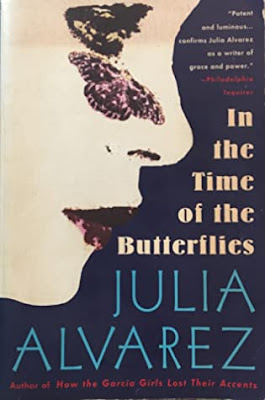Vonnegut, Kurt "Cat's Cradle" - 1963
We read this with our international online book club in June 2025.
While science-fiction is not really my thing, I would say this is more a dystopian novel. And a very good one. Granted, part of it is sci-fi though that is the case with a lot of dystopian novels. Here, the author even explained, how it happened that the world came into this distress.
I have only read one other book by Kurt Vonnegut before (Breakfast of Champions) and that was fantastic. So was this one. Kurt Vonnegut loves to play with words. And he always finds new ones that we haven't heard before but that makes a lot of sense.
As it says in the book description, our deepest fears are witnessing Armageddon and, even worse, surviviing it. My sentiments exactly. Should there be one, I'd rather not survive it than having to build up the earth again. Must be terrible.
Well, here we get the chance, We meet all sorts of different kind of quirky people who meet on a fictional Caribbean island where they witness the "End of the World". With his dark humour, the author manages to describe the encounters everyone has with Ice-Nine, a chemical that can destroy everything. And their reasons for getting engaged in the turmoil. His irony shows especially when he describes the fictional new religion Bokonon. So many witty insights that make us think about every existing religion.
He more or less ends with this quote: "Of all the words of mice and men, the saddest are, It might have been". One of the most true sentences there are.
If I haven't said it before, this is a great story. Definitely makes me want to read more of his books.
And here are some comments from the discussion:
- Most members thought it was really well written, and humorous in a satirical way. While at the same time having some underlying themes of criticism of religion, dictatorships, science, all in a writing style very unique to Vonnegut.
- I really liked the chapter layout, with short chapters of about only 1-2 pages, that as the chapter is read you realize the title of the chapter was really descriptive and inventive. While the end-of-world-science that happened was very quickly unfolding at the end of the story and not at all believable, it was written as a quite humorous conclusion to the story.
- I was prejudiced against it before I started reading it, so got pleasantly surprised that I really enjoyed it after all. I dislike reading about wars and horrors, but enjoy some dystopias, of which this one was a quite thoughtful fun version. I was happy we chose it as I would never have read it for myself.
From the back cover:
"With his trademark dry wit, Kurt Vonnegut's Cat's Cradle is an inventive science fiction satire that preys on our deepest fears of witnessing Armageddon - and, worse still, surviving it.
Dr Felix Hoenikker, one of the founding 'fathers' of the atomic bomb, has left a deadly legacy to the world. For he is the inventor of ice-nine, a lethal chemical capable of freezing the entire planet. Writer Jonah's search for its whereabouts leads to Hoenikker's three eccentric children, to an island republic in the Caribbean where the religion of Bokononism is practised, to love and to insanity. Told with deadpan humour and bitter irony, Kurt Vonnegut's cult tale of global destruction is a funny and frightening satire on the end of the world and the madness of mankind."
















